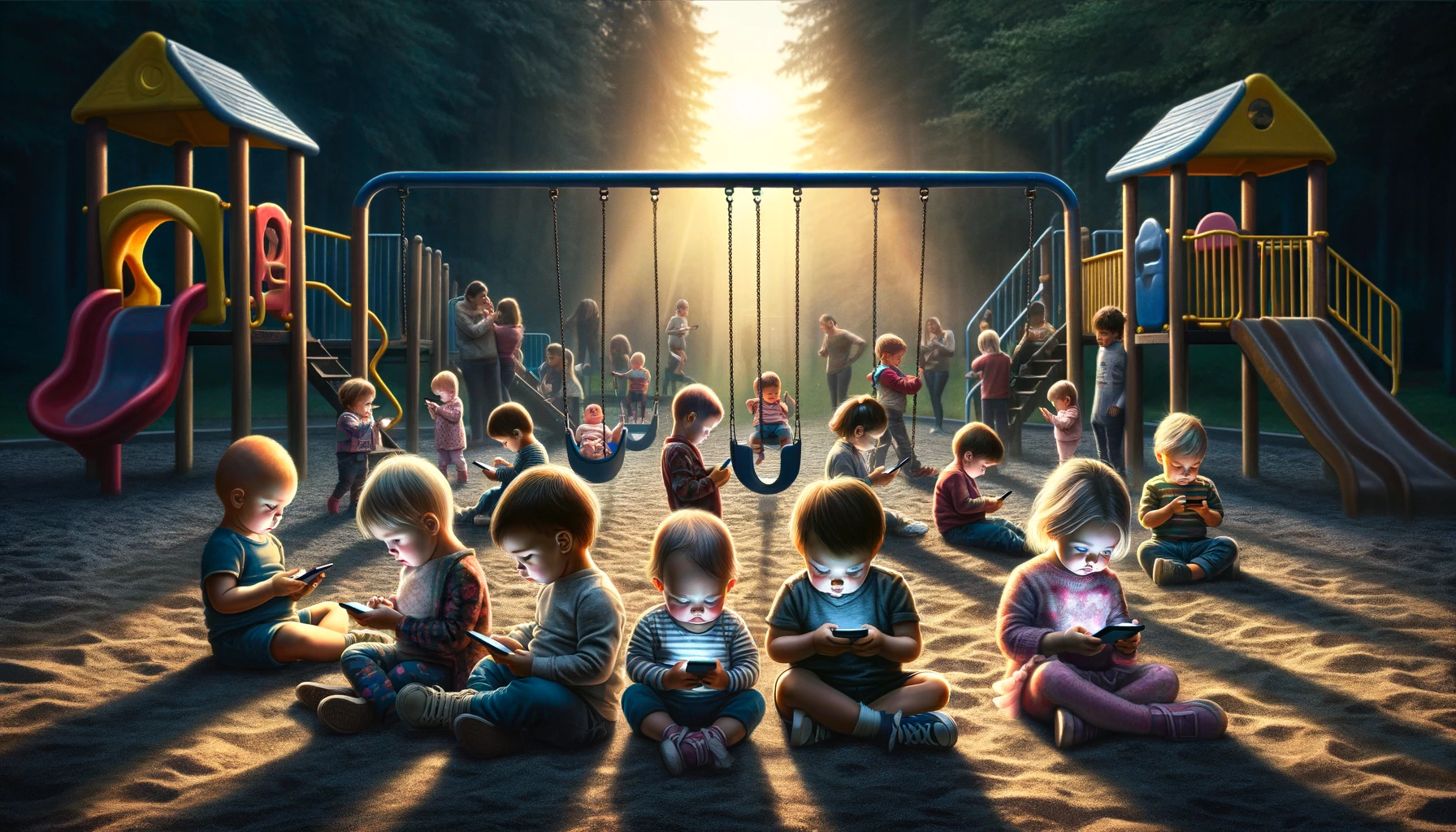The Never-Ending Scroll: How Digital Addiction is Handicapping Us
Introduction
Picture this: You’re trying to enjoy dinner with friends, but your phone keeps buzzing with notifications. Even before bed, you find yourself mindlessly scrolling through social media instead of winding down. Sound familiar? We’re all hooked on our screens, constantly checking, liking, and scrolling. This endless digital distraction is making us mentally handicapped – unable to truly focus, relax, and connect with the world around us. A strong need for Digital Detox

What is a Digital Detox?
A digital detox is like a vacation from your devices. You intentionally step away from your phone, computer, and maybe even your TV for a set period of time. There are different levels of detox: it could be as simple as turning off notifications for a few hours or a full-blown tech break for several days.
Table of Contents
How to Take a Digital Detox
Levels of Digital Detox: Finding Your Unplug Balance
Just like quitting sugary drinks, digital detoxing doesn’t have to be an all-or-nothing approach. You can tailor it to your needs and comfort level. Here’s a breakdown of different detox levels, with real-world examples to help you choose the right fit:
Level 1: The Notification Nightmare Slayer (Easy)
Focus: Reducing digital distractions without completely unplugging.
Activities: Turning off notifications for social media, email, and news apps. This allows you to check them on your own terms, reducing the constant buzz and anxiety.
Example: Imagine you’re working on an important presentation. Silence notifications to minimize interruptions and focus fully on the task at hand. Check your phone and respond to messages during designated breaks.
Level 2: The App Banisher (Moderate)
Focus: Taking a break from specific, highly distracting apps.
Activities: Temporarily deleting apps like social media, games, or news aggregators. This eliminates the temptation to mindlessly scroll and allows you to focus on other activities.
Example: You’re feeling overwhelmed by the negativity on social media. Delete the app from your phone for a weekend. Instead, spend that time reconnecting with friends in person, reading a book, or exploring a new hobby.
Level 3: The Tech-Free Pockets (Moderate)
Focus: Limiting device usage during specific times or situations.
Activities: Setting boundaries around device usage. This could involve keeping your phone out of the bedroom at night to ensure better sleep, or having tech-free dinners to promote conversation and connection with family.
Example: You find yourself checking your phone incessantly during meals. Institute a “tech-free dinner” policy where everyone puts their phones away and focuses on conversation and enjoying the food.
Level 4: The Weekend Warrior (Challenging)
Focus: Disconnecting from technology for a specific period, often over a weekend.
Activities: Choosing a dedicated time period (e.g., a weekend) to completely disconnect from electronic devices. This allows for a deeper digital detox experience.
Example: You’re planning a camping trip with friends. Opt for a “digital detox weekend” where everyone leaves their phones at home. Focus on enjoying the natural environment, playing games, and having unplugged conversations.
Level 5: The Monastery Mode (Extreme)
Focus: A complete digital disconnect for an extended period.
Activities: This is an intense detox, often lasting a week or more, where you completely abstain from all technology. This level is usually done in dedicated retreats focused on meditation and mindfulness.
Example: You’re struggling with severe tech addiction and need a complete reset. Consider attending a digital detox retreat where you can focus on self-reflection and reconnecting with yourself without any digital distractions.
Remember, the best detox level is the one that works for you. Start small, listen to your body and mind, and gradually increase the intensity as you feel comfortable..

The Dopamine Dilemma
Our brains have a reward system fueled by a chemical called dopamine. Every time we see a notification or get a ‘like’, we get a little dopamine hit. The problem is, constantly bombarding our brains with this stimulation makes us less sensitive to it. It’s like eating too many sweets – eventually, you need more and more to feel satisfied. A digital detox helps reset your dopamine system so you can find joy in the simpler things again.
Checking Yourself: Do You Need a Digital Detox?
Pay attention to these signs that it might be time for a break from the constant digital connection:
We all know that glued-to-your-phone feeling. But how can you tell if your digital habits are truly impacting your daily life? Here are some relatable symptoms to watch for, woven into everyday situations to make it clear how a digital detox can benefit you:
The Grocery List Blues: You sit down to write a grocery list, but your mind keeps wandering. Suddenly, you find yourself 20 minutes deep into a news article you barely remember clicking on. This inability to focus on a simple task and the feeling of being easily distracted by online stimuli could be a sign of digital overload.
Decision Paralysis at Dinner: You and your partner are trying to decide what to make for dinner. Overwhelmed by the endless recipe options and food blogs you’ve seen online, you end up ordering takeout instead. Feeling decision fatigue and struggling to make simple choices due to information overload can be a symptom of needing a digital detox.
The Foggy Morning Meeting: You walk into your morning meeting feeling sluggish and forgetful. You can’t quite recall the details from yesterday’s presentation you reviewed on your phone right before bed. Brain fog, characterized by difficulty concentrating and recalling information, can be linked to excessive screen time and disrupted sleep patterns.
The Weekend Binge-Watch: It’s Saturday, and you tell yourself you’ll just watch “one episode” of your favorite show. Hours later, you realize you’ve been glued to the screen all day, neglecting chores, errands, and social plans. This pattern of struggling to disconnect and feeling a compulsive need for constant digital stimulation is a sign you might benefit from a detox.
The Disconnected Conversation: You’re having dinner with a friend, but you keep checking your social media notifications or find yourself lost in thought about something you saw online earlier. Emotional numbness and a struggle to be present in conversations due to constant digital distraction can negatively impact your relationships.
By recognizing these symptoms in your daily activities, you can assess your need for a digital detox. Taking a break from technology can help you reclaim your focus, make better decisions, improve your memory, and ultimately, live a more present and engaged life.If you can relate to several of these symptoms, it’s definitely worth considering a digital detox to reset your system and reclaim your focus and emotional well-being.
The Benefits of Unplugging
- Sharper Mind: A digital detox helps improve focus and concentration. Think of it like clearing the clutter from your mental desktop.
- Peaceful Nights: Breaking the late-night scrolling habit leads to better quality sleep.
- Deeper Connections: When you put the phone down, you have more time and attention for meaningful interactions with loved ones.
How Long Should a Detox Last?
There’s no magic number. Start small, even a few hours of disconnection makes a difference. Gradually increase the duration, and consider regular tech-free days. It’s like exercise for your mental wellbeing – consistency is key!
Protecting Young Minds
Why is It More Important for Toddlers?
Little ones are like sponges, soaking up everything around them. The first few years of life are crucial for developing their brains, especially when it comes to focus, social skills, and language development. Here’s where developmental psychology comes in, and why a digital detox is even more important for toddlers:
Attention Spans Aren’t Built-In: Young children naturally have shorter attention spans. Unlike adults, they haven’t yet developed the ability to filter out distractions and concentrate for long periods.
The Rapid-Fire World of Screens: Fast-paced animations, flashy colors, and constant movement on screens overload a toddler’s developing brain. It’s hard for them to focus on one thing when there’s so much vying for their attention. This can hinder their ability to develop sustained focus, which is crucial for learning and future academic success.
Beyond Entertainment: Building Skills Through Play: Interactive play with caregivers and other children is essential for toddlers. It teaches them social skills, problem-solving, creativity, and language development. Excessive screen time replaces these critical interactions, limiting their opportunities to build these vital skills.
Blue Light and the Sleep Cycle: Screens emit blue light, which can disrupt the production of melatonin, a hormone that regulates sleep. Toddlers who spend too much time in front of screens are more likely to have sleep problems, which can further impact their focus, learning, and mood.
By limiting screen time and encouraging interactive play, you’re giving your toddler the foundation they need for healthy brain development, strong social skills, and a good night’s sleep..
Transforming Your Daily Life
A digital detox makes you aware of how often you automatically reach for your devices. Breaking this habit leads to increased productivity and a greater sense of presence. You’ll be more in the moment, enjoying simple tasks without the digital distraction.
Conclusion
Technology is a fantastic tool, but it shouldn’t control us. A digital detox isn’t about demonizing tech; it’s about using it intentionally. So, if you find yourself lost in the endless scroll, consider taking a break. Rediscover the offline world and reclaim your focus, peace, and connection.



Leave a Reply